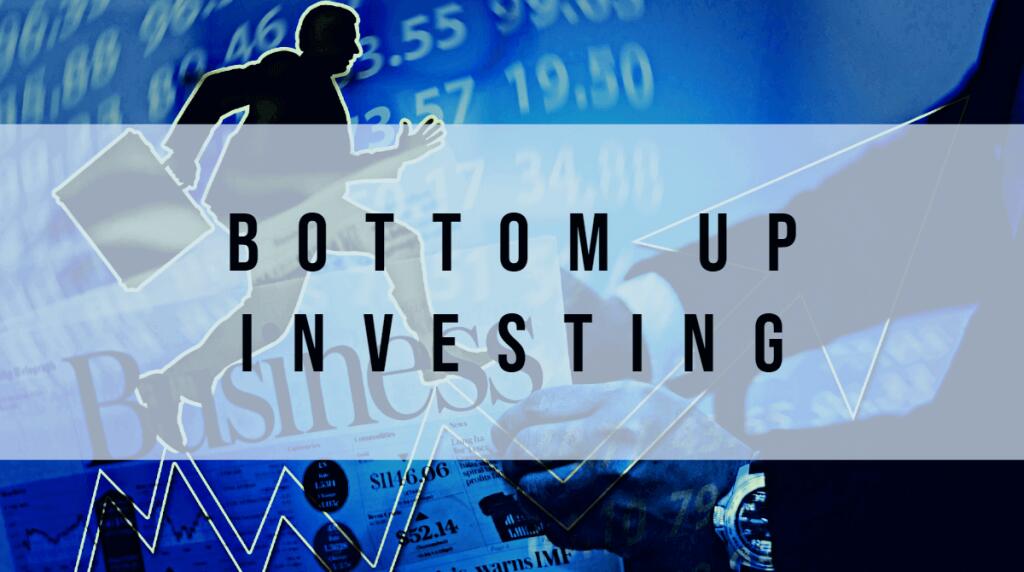
While retail traders may not have the same level of resources or expertise as institutional traders, they can still learn to trade by adopting certain strategies, risk management techniques, and using advanced trading platforms. However, the gap between institutional and retail traders may persist due to differences in capital, execution speed, and access to information. Retail traders, often referred to as individual traders, buy or sell securities for personal accounts. Institutional traders buy and sell securities for accounts they manage for a group or institution.
- The percentage of corporate shares held by institutional investors has increased dramatically in the last 60 years.
- The pound sank 15% on that day, September 16, 1992, and Soros profited almost a billion dollars.
- Al Brooks is a full time professional price action day trader who understands what a trader goes through to achieve his goal of making money, and he is a strong advocate for individual traders.
- Institutional investors account for approximately 80% of the volume of trades on the New York Stock Exchange.
- In the United States, an accredited investor must have a net worth of over $1 million, excluding the value of their primary residence.
- Now, let’s delve deeper into the world of institutional trading and explore its key differences from retail trading.
Institutional trading forex differs from retail trading forex, which involves individuals and smaller traders buying and selling currencies on their own accounts. Institutional investors are very large investors that buy large volumes of securities, such as stocks and bonds. Some of the most common types of institutional investors include banks, mutual fund companies, hedge funds, pension funds, real estate investment trusts (REITs), credit unions, and endowment funds.
Overview: What is Institutional Trading?
O’Neil reckons that if a stock has no institutional owners, it’s because they have already seen it and rejected it. In his book How to Make Money in Stocks, O’Neil has institutional sponsorship as the sixth characteristic to look for in stocks worth buying. Institutional traders have access to advanced technology and resources that allow them to analyze market trends and make informed investment decisions. So, whether you’re a retail trader or an institutional trader, it’s important to stay up-to-date on industry trends and trading strategies to ensure that you’re making the most of your trades.

For more details, please refer to the OKX Terms of Use and Risk & Compliance Disclosure. When you’re searching for a financial advisor, you might find some prominent advisors who primarily work with institutional clients – for instance, a firm that exclusively advises pension plans. If you’re seeking individual investment management and financial planning, you probably won’t be able to work with such an advisor. On the other hand, some advisors work with both individuals and institutional investors.
Steps to becoming an institutional trader…
These regulations aim to prevent insider trading, protect investors from fraud, and maintain overall market stability. These traders may also take the other side of a trade, buying when others are selling and selling when others are buying, in order to balance their portfolios by modifying their holdings. Successful traders have adapted by investing in technology themselves or by focusing on longer-term strategies that are less affected by short-term fluctuations.
The big lesson here is that institutional selling can send a stock into a downdraft regardless of the underlying fundamentals of the company. Vanguard is the largest manager with $5.02 trillion in institutional assets under management (AUM) as of Dec. 31, 2022. BlackRock and State Street follow with $4.83 trillion and $2.4 trillion, respectively. Certainly not, but it does greatly enhance the probability that they will book a profit. It also puts them into a potentially more advantageous position than that of most individual investors.
Factor investing
While insider buying is usually a good sign, don’t be alarmed by insider selling, unless there is a lot of it. Insiders tend to buy because they have positive expectations, but they may sell for reasons independent of their expectations for the company. For example, Google’s much publicized initial public offering (IPO) in the fall of 2004 was criticized for issuing a special class of super voting shares to certain company executives.

They also have access to advanced research tools and sophisticated algorithms that enable them to identify trends and opportunities before others do. Investment companies are regulated primarily under the Investment Company Act of 1940, and also come under other securities laws in force in the United States.
Examples of Successful Institutional Traders
Today, the volume of trades by retail investors pales in comparison to the trading activity of institutional investors. Institutions have large sums of money, so it isn’t surprising why companies and the market welcome them with open arms. These entities are (but aren’t limited to) mutual funds, pension funds, hedge funds, and private https://investmentsanalysis.info/ equity firms. But institutional involvement isn’t always a good thing—especially when the institutions are selling. With fewer opportunities through the corporate pathway, retail traders are the next generation of institutional traders in waiting. Some firms provide a link between talented retail traders and institutional trading.
With 88% institutional ownership, Keysight Technologies, Inc. (NYSE:KEYS) is a favorite amongst the big guns – Simply Wall St
With 88% institutional ownership, Keysight Technologies, Inc. (NYSE:KEYS) is a favorite amongst the big guns.
Posted: Tue, 05 Sep 2023 14:19:13 GMT [source]
Institutional investors control a significant amount of all financial assets in the United States and exert considerable influence in all markets. This influence has grown over time and can be confirmed by examining the concentration of ownership by institutional investors in the equity of publicly traded corporations. In 2021, gross revenues for FINRA-registered brokers and dealers were $398.6 billion, up 10.1% over the previous year. As the size and importance of institutions continue to grow, so do their relative holdings and influence on the financial markets. Institutional investors are organizations that pool together funds on behalf of others and invest those funds in a variety of different financial instruments and asset classes. They include investment funds like mutual funds and ETFs, insurance funds, and pension plans as well as investment banks and hedge funds.
Since the launch of Nitro Spreads, OKX has hit a cumulative US$500 million in trading volumes, with some of the biggest trades being in the 100’s of BTC and 1,000-2,000 ETH, making it a truly institutional-grade trading platform. An author, teacher & investing expert with nearly two decades experience as an investment portfolio manager and chief financial officer for a real estate holding company. Because if passive investing dominates, the majority of stocks will no longer be bought on the basis of rewarding companies that are profitable, productive, promising and well managed. A traditional method of reward, punishment and incentive for companies will have broken down. Market mechanisms for determining the prices of commodities could also be distorted, these analysts argue. This is especially true of stocks where many institutions trade huge blocks of stock in dark pools.
Institutional Ownership: Pros and Cons
The institutional traders implement the asset allocation strategy to balance the risk and reward in the portfolio. This practice/strategy adjusts the percentage of each financial instrument in the portfolio in accordance with the client’s risk tolerance, goals and the decided investment time frame. The sizable presence of institutional investors in the market means that corporations that are ostensibly competitors have many of the same shareholders. If you look up the largest shareholders of brands you’re familiar with, you’ll find that institutional investors top many of those lists.
High insider ownership typically signals confidence in a company’s prospects and ownership in its shares. This, in turn, gives the company’s management an incentive to make the company profitable and maximize shareholder value. This form is used to report any changes of ownership of insiders who hold more than 10% of a company’s stock. By keeping up-to-date with recent reports, expert tips, and analysis of this topic, you can make informed investment decisions that will help you achieve your financial goals. It’s important to note that institutional forex trading is also a significant part of institutional trading.
I believe that the majority of them are being placed by computers conducting various forms of computerized trading (including high frequency trading). They often involve scaling in or out of trades and hedging against positions in related markets. High-frequency trading involves using advanced technology to execute trades quickly and frequently in order to capture small profits from short-term market movements. Institutional traders use algorithms to identify market trends and enter and exit trades within fractions of a second. There are quite a few differences between the institutional investor and the retail investor, some of which have been pointed out previously. Below, you’ll find a summary of key differences that underscores the essential aspects of size and influence belonging to each type of investor.
Smart Money of Institutional Ownership
However, it also carries some risks, including volatility, counterparty risk, regulatory risk, and technology risk. Overall, institutional trading forex plays a crucial role in the global economy and offers significant opportunities for institutional investors to generate returns LexaTrade Review for their clients. Institutional traders have access to more resources, sophisticated tools, and a higher level of expertise compared to retail traders. These organizations are legal entities that collect funds from a variety of investors in order to trade on their behalf.
